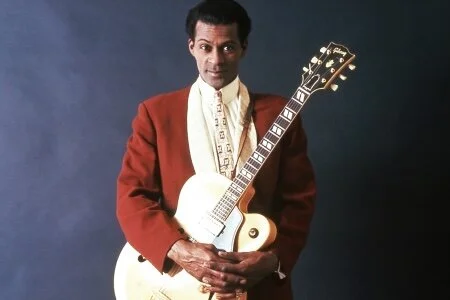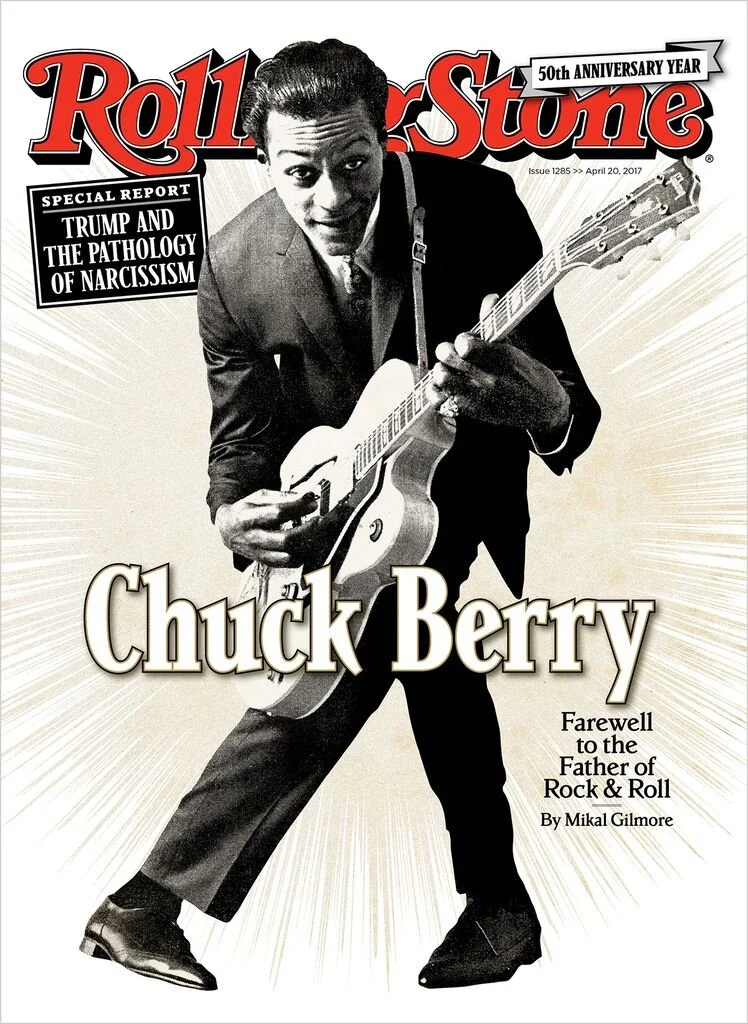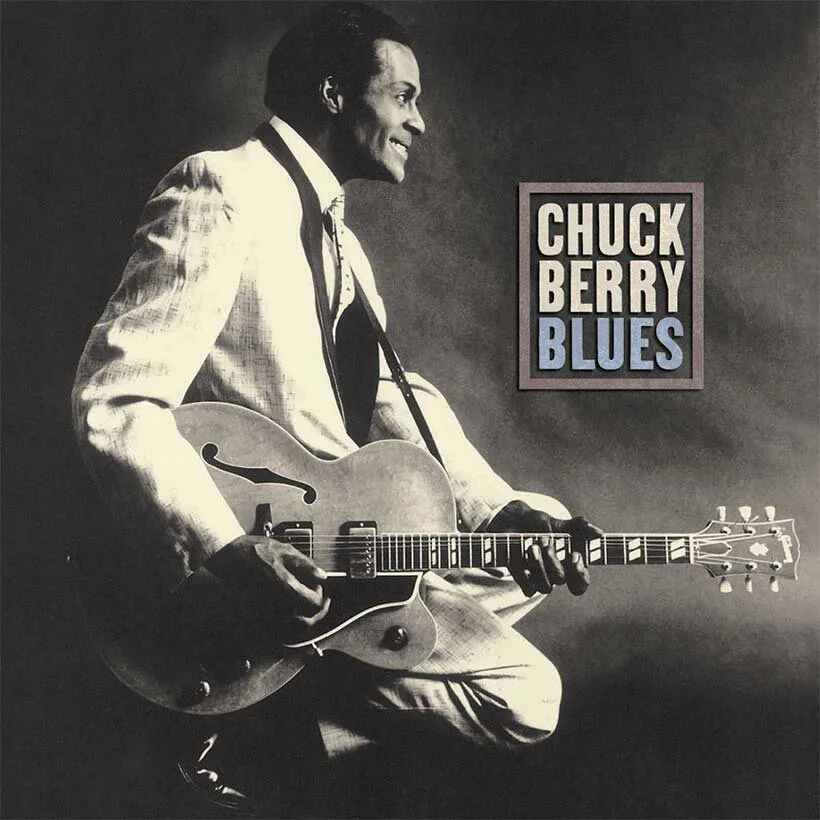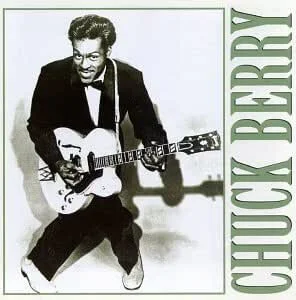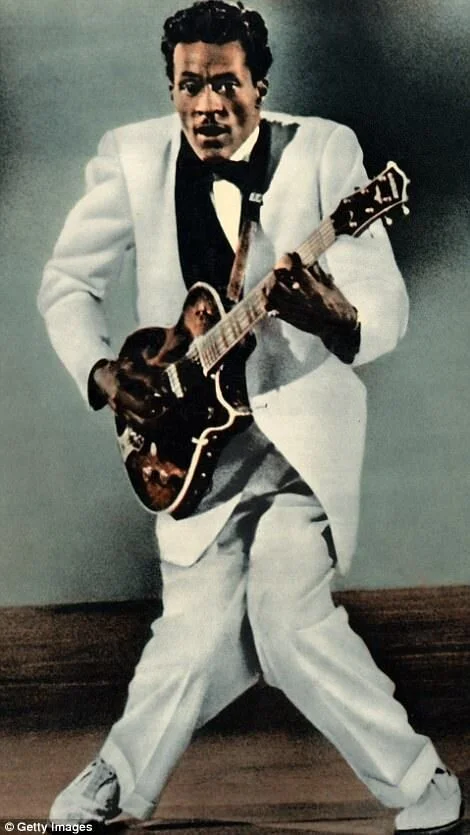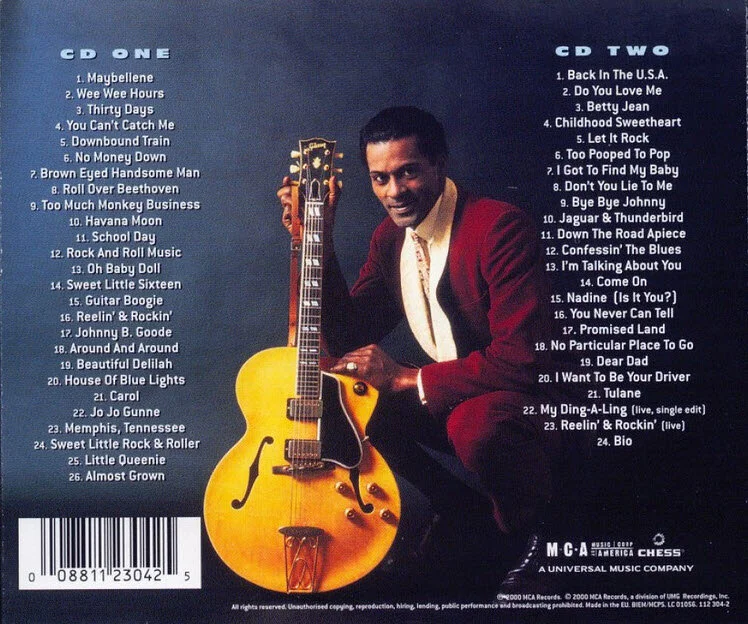Chuck Berry • Johnny B. Goode
This month, we started a brand new tradition - “Fab Fifties Friday Night
Each Friday night we pick a different 50s artist to spotlight. Because the 1950s was such a fun era of music, we must not allow it to become lost in time, like the hula hoop or the Edsel or roller rinks. So here again, keeping my promise, is another great 50s artist that I think you are going to love:
Tonight, the spotlight turns to one of the most gifted and successful superstars of the 1950s; perhaps the most captivating performer of all time, Chuck Berry! Again, as usual, we’ll attach a few videos of him in action so you can see for yourself. But first, a little background about the man often referred to as the “Father of Rock and Roll.” John Lennon once said, "If you tried to give rock and roll another name, you might call it 'Chuck Berry'."
Chuck Berry
Charles Edward Anderson Berry (Oct. 18, 1926 – March 18, 2017) was an American singer and songwriter, and one of the primary pioneers of the movement of rock and roll music. Berry developed and innovated the 1950s rhythm and blues sound, and his style evolved into mainstream popular rock and roll.
The Rock and Roll Hall of Fame, in honoring Chuck Berry, said “While no individual can be said to have invented rock and roll, Chuck Berry comes the closest of any single figure to being the one who put all the essential pieces together. It was his genius to graft country & western guitar licks onto a rhythm & blues chassis even in his first single, ‘Maybellene.’”His signature songs, with their storytelling, really defined his version of early rock and roll, such as “Roll Over Beethoven” (1956), “Rock and Roll Music” (1957), and “Johnny B. Goode” (1958).
His lyrics aimed to appeal to the early teen market by using graphic and humorous descriptions of teen dances, fast cars, high school life, and consumer culture. His unique showmanship would become a major influence on subsequent rock music. As a songwriter, according to critic Jon Pareles, Berry invented rock as "a music of teenage wishes fulfilled and good times (even with cops in pursuit)." Berry’s contribution to early rock and roll included at least two things, his own legendary guitar riffs and accompanying showmanship, and his style of songwriting as storytelling.
Chuck Berry was born into a middle-class African-American family in St. Louis. He had an interest in music from an early age and gave his first public performance at Sumner High School. By the end of the 1950s, Berry was an established star, with several hit records and film appearances and a lucrative touring career. He had also established his own St. Louis nightclub, Berry's Club Bandstand.
However Berry was plagued with some legal troubles a few times in his life. He was sentenced to three years in prison in January 1962 for transporting a 14-year-old girl across state lines. After his release in 1963, Berry had several more hits, but these did not achieve the same success, or lasting impact, of his 1950s songs. By the 1970s he was more in demand as a nostalgic performer, playing his past hits with local backup bands of variable quality. His insistence on being paid in cash led in 1979 to a four-month jail sentence and community service, for tax evasion.
Chuck Berry was ranked seventh on Time magazine's list of the 10 best electric guitar players of all time. He is included in several of Rolling Stone magazine's "Greatest of All Time" lists. In September 2003, the magazine ranked him number 6 in its list of the "100 Greatest Guitarists of All Time.” Berry’s compilation album “The Great Twenty-Eight” was ranked 21st in Rolling Stone’s 500 Greatest Albums of All Time. In June 2008, his song "Johnny B. Goode" was ranked first in the "100 Greatest Guitar Songs of All Time.”
Best of Chuck Berry on Spotify
Here is a video of Chuck Berry, from 1958 with a live performance of “Johnny B. Goode:”
Here is a live performance of “Roll Over Beethoven” from 1972:
This one is a live performance of “C’est la vie” also from 1972: (This 1964 hit song was used in the film “Pulp Fiction”):
This performance is a duet with John Lennon. First they do the song “Memphis,” and then they do “Johnny B. Goode:”


